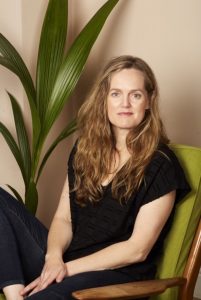When I tell people I meet that I am an osteopath I very frequently hear back: “That’s to do with bones isn’t it” or “That’s the treatment of the muscles and the back”.
While these statements are not incorrect there is so much more to Osteopathy than bones and muscles. It’s an amazing profession which I have now been immersed in for coming up to 10 years and my learning has never stopped. I wanted to write a piece to share some of this learning and help you to gain a better understanding of Osteopathy.
For those who have experienced osteopathy with myself you will be developing your own understanding. Osteopathy is better experienced than put into words but here is my attempt to put it into words….
Osteopathy can be described as a type of philosophy – a way of looking at the human body and health which was described by the founder of Osteopathy Andrew Taylor Still in the late 1800’s.
What is Osteopathic Philosophy and how does it differ to modern medicine?
T he focus of modern medicine (aka allopathic medicine) lies in diagnosing and treating disease.
he focus of modern medicine (aka allopathic medicine) lies in diagnosing and treating disease.
You are diagnosed with something and are treated for that something.
The focus in osteopathy is almost the reverse:
It is about HEALTH and OPTIMISING YOUR HEALTH.
Innate within your body is the ability to maintain and heal and repair itself. You know this already: if you cut your finger – it heals.
Osteopathy is focused on addressing factors which have compromised the ability of your body to heal itself.
It’s really important to remember that this HEALING CAPACITY is a function of your body AS A WHOLE. Your finger cannot repair itself – it relies on a good arterial blood supply to your finger, an effective venous and lymphatic system to drain away fluids and waste products, a functioning liver to produce the proteins required for repair, bone marrow to produce the white blood cells to prevent infection etc.
Considering the WHOLE and not the parts actually requires a cultural shift for us Westerners. Western society has for a long time looked at parts. This is reflected in our attitudes to our bodies when something goes wrong. Take for instance low back pain – instinctively we think the problem is in our low back. Where else could it be – that’s the bit that hurts that must be where the problem lies.
If you’re prepared to make a mental shift you will see that there could be many compromising factors all over the body leading to your symptom pattern.
Now the question I always ask is why have you developed that problem?
What are your compromising factors?
I have to consider your complete history including any trauma, surgery, general state of health, habits, posture, how you use your body, emotional state, nutritional state, the health and mobility of your organs….and on the list goes.
I use your case history together with my knowledge of anatomy and physiology and what I feel in your body to work out what your compromising factors are and I use my knowledge and skills to help your body to deal with these factors in order to complete the healing process and avoid reinjury.
 Treatment then takes all of your compromising factors into account and focuses on your body in its totality to restore the self-regulating mechanism to its optimal capacity.
Treatment then takes all of your compromising factors into account and focuses on your body in its totality to restore the self-regulating mechanism to its optimal capacity.
What are some examples of compromising factors?
There are so many possible compromising factors as each human body is both highly complex and unique. If for instance you were suffering from back pain, here are some brief examples of compromising factors which could lead to your symptoms:
- a restricted diaphragm related to poor postural habits and breathing patterns which rely on your upper chest instead of your diaphragm
- a restriction in the movement of your colon or some other part of your digestive tract which may in turn be related to a history of inflammation in your gut
- a restricted sacrum due to an old whiplash trauma.
Osteopathy cannot be formulaic because human beings are not formulaic.
As an Osteopath I am continually endeavoring to help those who come to me to find their optimal health and to find and help to release their compromising factors. Each case is utterly unique and non formulaic because we are all unique. I have to work as a detective with everyone I see always remaining curious, always digging and looking for those keys to health.
It makes for fascinating work which I hope to be enjoying for a long time yet.
“My treatments with Rebecca have ended up helping to relieve a whole pattern of symptoms. She is an excellent practitioner who treats the whole person and not just the symptoms. She also takes the time to explain how the body works and why symptoms arise.”


